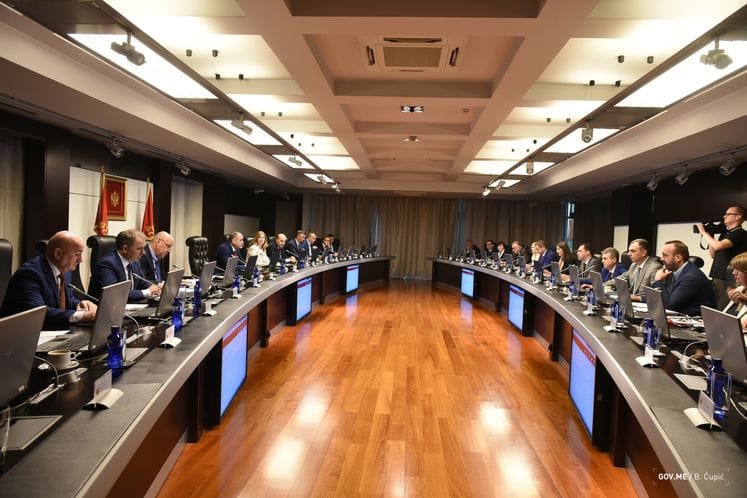- Government of Montenegro
Press release from 27th Cabinet session: Criminal ...
Press release from 27th Cabinet session: Criminal Code, EU negotiating structure, tourism

Podgorica, Montenegro (25 May 2017) – At today's session, the Cabinet passed the Draft Law Amending the Criminal Code of Montenegro. The proposed amendments are a continuation of harmonisation of national legislation with the EU acquis, conventions of the Council of Europe and the United Nations, legal standards of the European Court of Human Rights and other international instruments. The amendments, inter alia, stupulate the introduction of a long-term imprisonment which may last from thirty to forty years instead of a prison sentence of forty years. The novelties also provide for that the punishment can be prescribed for the most serious crimes, but it can not be prescribed as the only punishment for certain criminal act.
Cabinet also passed the Draft Law Amending the Law on the Protection of Cultural Property. One of the most significant novelties refers to the deadlines for reaching a decision on determining the status of cultural heritage and for determining the boundaries of the protected area. According to the amendments, the monuments which have acquired status under previous legislation will be placed under legal protection until a decision on determining the status of cultural property has been made, thus protecting them from devastation.
Today's session also completed the process of innovating the negotiating structures in the rule of law area by changing the composition of the working groups for chapters 23 and 24. Namely, the working group for Chapter 23: Judiciary and Fundamental Rights now has 70 members, as four new representatives of civil society and one representative of the academic community joined the group. This working group will now have 11 representatives of the civil society who can significantly contribute to the further process of EU negotiations in this area.
Furthermore, the working group for Chapter 24: Justice, Freedom and Security, was also innovated and now it is composed of 41 members, with no representatives of NGOs.
By making these changes, the Government once again demonstrated openness and inclusiveness with respect to all participants in the process of negotiations with the European Union, thus continuing involvement of civil society in the negotiating structure. The Government regrets that there was no equal interest of representatives of non-governmental organisations for membership in both working group, that is in Chapter 24, emphasising that it is the area where the non-governmental sector could offered expertise that would help further process of negotiations in the area of justice, freedom and security.
Cabinet adopted a programme of incentives in the field of tourism for 2017/2018, which contains concrete measures of financial support for the enrichment and improvement of the quality of tourist offer, while enhancing marketing activities to attract tourists from new markets towards generating higher revenues in tourism, extending the tourist season, increasing the degree of occupancy of accommodation capacities, consumption and employment.
It also adopted the report on the implementation of the Programme of construction, maintenance, reconstruction and modernisation of the railway infrastructure for 2016. The report, inter alia, states that a total of EUR 6.8 million was spent for this purpose in 2016.
